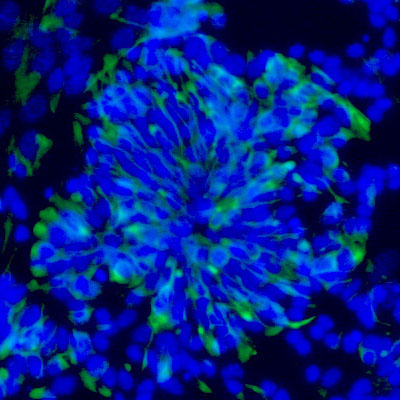
In the ongoing quest to understand how embryonic stem cells (ESCs) retain their ability to differentiate into virtually any kind of cell, USC faculty member Qi-Long Ying and a team of researchers have discovered a new clue.
An August study published in The EMBO Journal reveals the important role of Tfcp2l1 — a transcription factor, or protein that controls which genes are turned on and off in a cell.
In mice, Tfcp2l1 helps communicate to ESCs that they should self-renew, or divide to produce more stem cells. The transcription factor also shows promise for “rewinding” slightly more differentiated epiblast stem cells into the more naïve embryonic stem cell state.
To read the full journal article, visit www.nature.com/doifinder/10.1038/emboj.2013.175.
Co-authors include Shoudong Ye, Ping Li and Chang Tong from the Eli and Edythe Broad Center for Regenerative Medicine and Stem Cell Research at USC. Ye is also affiliated with Fudan University in Shanghai.
This work was supported by the California Institute for Regenerative Medicine (CIRM) New Faculty Award II (RN2-00938-1).
